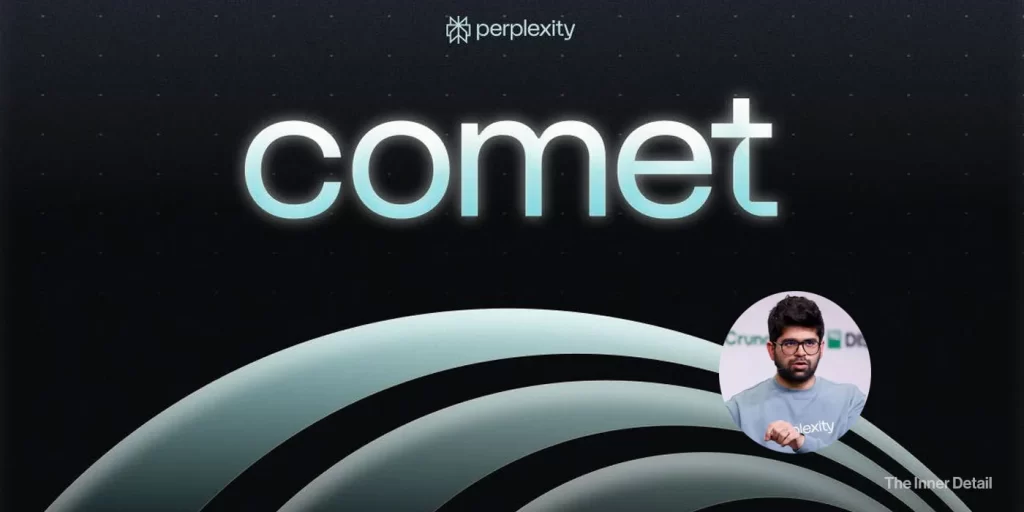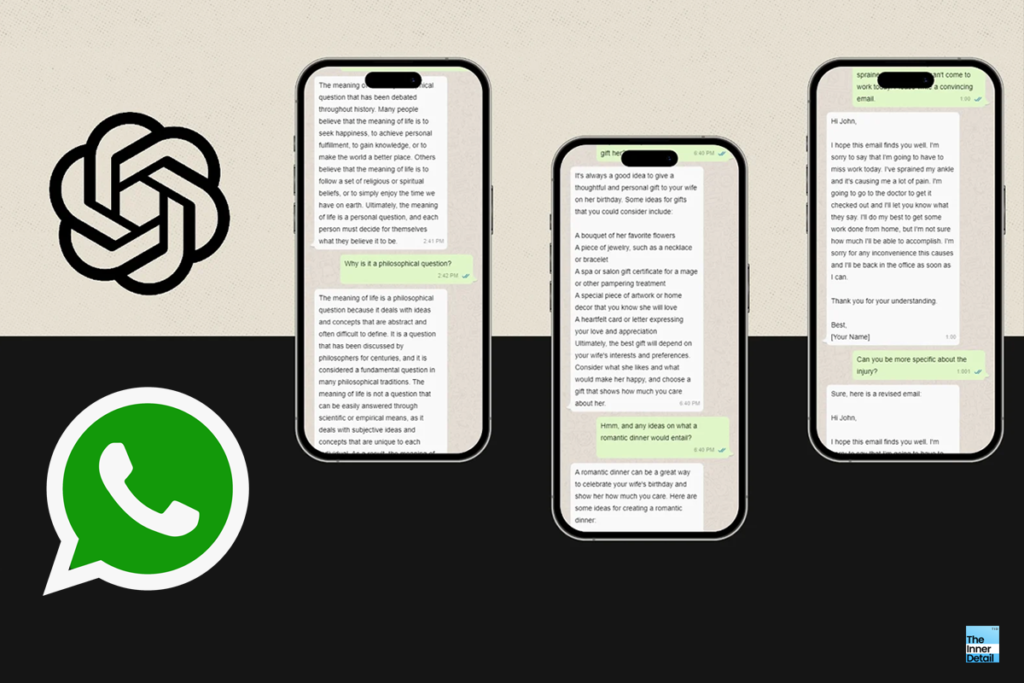Perplexity announced its new web-browser called “Comet”, which is equipped with “Agentic AI”, the first of the kind among browsers. As AI agents gets traction among companies and people, the California-based AI firm wants to bring the power of agents in day-to-day activities through web-browsers.
Agentic AI, the successor to generative-AI, is the currently evolving AI-tech where machines can perform tasks by themselves on behalf of you with minimal human intervention. If you’re new to AI agents, take a quick look into this article and get back here. Assuming that you’ve understood AI-Agents, let’s go forward.
Comet Browser
Perplexity AI, known for its direct, conversational AI search engine, is making a bold leap into the web browser market with its upcoming product: Comet. Positioned as “A Browser for Agentic Search,” Comet aims to reimagine how we interact with the internet, moving beyond just displaying links to become an intelligent, proactive assistant.
At its core, Comet is built around the concept of agentic search. This isn’t just about returning search results; it means the browser uses AI agents to understand complex instructions, perform multi-step tasks, synthesize information from various sources, and even make autonomous decisions within defined limits. Comet is an AI-native browser developed by the team behind Perplexity and is built on the open-source Chromium engine. While still in closed beta for select users on Apple Silicon Macs, it represents Perplexity’s ambition to deeply embed its AI capabilities into the user’s online workflow.
Key Features Setting Comet Apart
Based on early access and Perplexity’s vision, Comet promises a range of features designed to enhance productivity and streamline browsing:
- Integrated AI Assistance: Seamlessly use Perplexity’s search and summarization tools directly within any webpage.
- Intelligent Tab Management: Control and organize tabs using natural language commands, such as opening multiple URLs, grouping, or closing tabs. It can also check your shopping cart or help find unanswered emails.
- Deep Research Tools: Offers capabilities for in-depth analysis and provides real-time information with source citations.
- Privacy Focus: The beta version starts with the ability to block advertisements and trackers. Personalization is based on local data (history and open tabs), which is not used for model training.
- Extensive App Integrations: Aims to support over 800 applications, becoming a central hub for digital activities.
Comet is designed to save users hours each week by automating tasks like analyzing inboxes, preparing for interviews, and generating meeting notes.
Comet in the Browser Landscape
Entering the competitive browser market, Comet faces established giants like Google Chrome and Microsoft Edge, both also built on Chromium and increasingly incorporating AI features. Chrome offers integrated features like Google Lens and Translate, while Edge boasts features like Immersive Reader and a coupon finder. Both have added AI features like organizing tabs or helping with writing, similar to Comet’s aims.
However, Comet’s key differentiator is its AI-first, agentic approach, aiming for a deeper integration of AI into the browsing experience than traditional browsers which may add AI as bolted-on features. While browsers like Brave and Firefox prioritize user privacy, Comet positions itself as an intelligent assistant, though this raises ethical questions about data collection.
Perplexity sees Comet as a strategic move to control the primary interface for accessing the web, building a more integrated ecosystem around its popular search technology. As the product evolves with daily improvements, Comet is definitely a development worth watching. However, there has been concerns with the browser that needs to be addressed.
Transparent Surveillance?
Perplexity wants to get into the desktops and laptops through web-browser to personalize Ads for individuals. Perplexity CEO Aravind Srinivas confirmed that the company’s upcoming browser, Comet, will track everything users do online. The goal is to collect detailed personal data to deliver highly targeted ads, and the browser is set to launch in May. For this reason, Perplexity even spread the dragnet to acquire Google Chrome.
During the remedies phase of the trial in April 2025, where the potential break-up of Google was being discussed, Perplexity’s Chief Business Officer, Dmitry Shevelenko, testified that Perplexity would be interested in acquiring Chrome if Google were forced to sell it.
Though the agentic browser is a step ahead of current browser-market, the company’s deliberate admittance of tracking its users raises concerns about privacy and security. A transparent surveillance is still a surveillance and customers won’t be convinced to browse freely through internet, if they feel they’re being watched all-time.
Would you be using Perplexity’s ‘Agentic-AI’ browser “Comet”? Drop your thoughts in comments!
(For more such interesting informational, technology and innovation stuffs, keep reading The Inner Detail).
Kindly add ‘The Inner Detail’ to your Google News Feed by following us!







